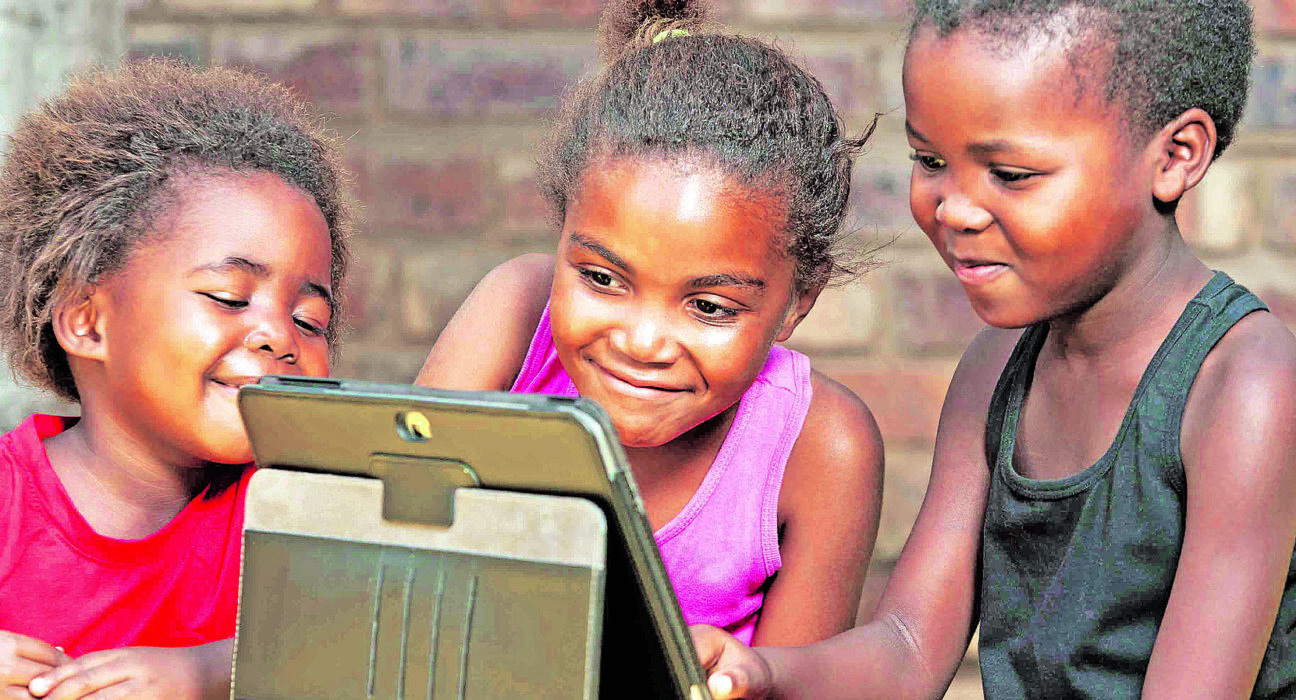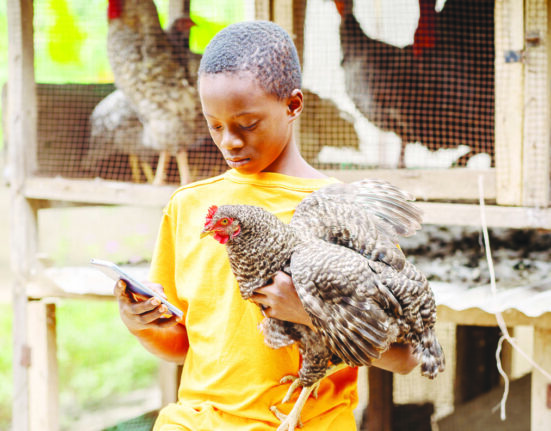(This article was first published in the New Vision on January 11, 2023)
Many children are now online. The UN children’s agency estimates that one in three Internet users globally is a child. While the Internet use brings numerous benefits to your child, it is not risk free. Maureen Nakatudde looks at the ways your child can use the Internet productively while staying safe this holiday season.
The first thing Roses Kirabo, 13, does when she wakes up is open her tablet computer. She opens various websites and gets absorbed in digital media.
“She wants to be online all the time,” Mary Namuddu, her mother, says.
“When I assign her work around the house, she is always hesitant to do it. She doesn’t produce thorough work because she always wants to go back to her iPad.” Namuddu says her daughter’s love for the digital gadget keeps her from having fun with the rest of her family — which is based in Kampala — as she does not seem to have the ability to do away without the Internet.
Today, more schoolchildren like Kirabo, who is in a primary school, are receiving lessons and accessing learning material on digital platforms through various devices. The internet-enabled devices are now part and parcel of the learners’ lives.
Globally, governments like in Uganda have developed policies to deepen the use of technology in learning. While technology aids learning, the gadgets, in the hands of children, also pose some dangers.
Some of the dangers include being easy targets of criminals lurking in the digital space, failing to complete offline tasks because of addiction to technology and accessing content that could hurt the children’s physiological and mental health.
The 2019 study by the UN children’s agency estimates that one in three Internet users globally is a child and that most children access the Internet at home on mobile phones. It shows that many children go online to watch videos and play games. But how can your children use this technology productively while staying safe from harm?

Tell children about dangers
Ken Stober, the chief executive officer at Simplifi Networks, an information technology firm based in Bugolobi, Kampala, says your children will most likely encounter inappropriate content such as pornography and graphic images of accidents as well as criminals.
These criminals, he says, could get crucial information about your family through your children. However, if you have a good relationship with your children and have told them about possible dangers in the digital world, they will bring any suspicious content to your attention, Stober says.
The 2020 International Telecommunication Union (ITU) guidelines for protecting children online encourage youngsters to report to their parents if anyone asks them for a photo. They also encourage parents to use privacy settings on some websites and apps to keep their children’s information private.
“If your children feel they are in danger online, they will have the confidence to reveal to you any information that seems dangerous to them,” Stober says.
“It is also important to let your children know there is a lot of fake information online and encourage them to go to credible sites for information,”
A 2019 study by the UN children’s agency encourages parents to engage positively with their children about the digital world and guide them on content and potential risks instead of worrying about the fact that children are online.
This, the study says, would build the children’s ability to thrive online. Noting that Internet access is not without risks, the UN children’s agency encourages technology companies to remove content which is harmful to children.

Passwords
Emmanuel Ssebaggala, the chief executive officer at Bodastage Solutions, a telecom network management platform, urges parents to encourage their children to use passwords to prevent criminal-minded people from accessing their sensitive information.
Stronger passwords include upper-and lower-case letters as well as numbers and unique characters.
“Some people take long to change their passwords yet they use simple ones,” Ssebaggala says, adding that “Children should avoid using dates of birth, their personal names and names of villages to create passwords.”
One other problem your children face in the digital space is bullying. This, Stober says, could affect their self-esteem, especially if they do not bring it to your attention.
“Talk to them about bullying and find ways of dealing with it so it does not affect them,” he adds.
Monitor children online
Aidah Nanono, a teacher of English language at Sir Apollo Kaggwa Primary School in Nakasero, Kampala, encourages parents to take a keen interest in the content their children access online.
She says this will help one understand, for instance, the non-academic content such as entertainment your child is interested in and guide them appropriately.
Stober says during holidays, he ensures that their daughter completes her assignments on computers in “a common area” accessible to all members of the family.
“Let your children use technology in spaces where you can easily see what they are doing,” Stober says. “You can also be friends with your child on social media so you see what they post and advise them accordingly.”

Control access to content
Ambrose Ahurra, a telecom engineer, says one can use apps to control their child’s presence online. The apps, he adds, will not only help one to know how their child is navigating the digital space, but will also enable parents to guide their young ones as they learn, play and explore online.
“One can have control over what apps they can install. Parents can block the children from downloading some apps and accessing sites such as gambling websites,” Ahurra says.
“Such apps can also help one to know where their child is at a particular time because they can see where the device is.”
With this kind of protection, he adds, a parent can even disconnect Internet access to their child’s device. “One can also determine the time their children should be online,” Ahurra adds.
“With some apps, one can lock and unlock the child’s device,”
Nanono says parents can help their children develop timetables for doing household chores and how to use technology to complete school-related assignments or for entertainment.
“This will help the children go online for a purpose at the right time. Encourage your children to use technology to join reading groups and quit or block groups where undesirable content is shared.”
Online and offline activities
Jennifer Kalule, the Uganda National Examinations Board’s principal public relations officer, says developing a schedule of activities for your children, especially during the holiday, helps to ensure they are not online all the time.
Kalule adds that one can also encourage the older siblings to guide their young sisters and brothers on the appropriate use of these gadgets.
“This can even be a cousin or a friend who can help them desist from going off course while online. Sometimes, children listen better to their age mates or someone they respect and admire,” she says.
Harriet Akello says she locks away the gadgets overnight and returns them to her children after they have done house chores the next day.
The UN children’s agency encourages parents to guide their children on what they can do online. Parents are also advised to do some online activities together with their children.
In addition, the ITU guidelines for protecting children online encourage parents to help their children balance online with offline activities.
How to keep your child safe online
- Understand the risks and opportunities
- Stay engaged in what children do online
- Find out about good websites and games for learning and entertainment
- Dialogue with your children
- Encourage children to be responsible digital citizens
- Encourage critical thinking about what children see online
- Talk about peer pressure and managing friends online
- Tell the children about the addictive power of technology
- Encourage the children to report offensive information
- Set rules for Internet use
- Be role models for online behavior
- Use in-built tools to know time spent on apps
- Teach children not to share passwords
- Stay calm and do not confiscate devices from children
- Help children recover from bad online experiences

How children can benefit from using the internet
- Learn new things such as different cultures
- Access to information on work and study opportunities
- Access to news and information
- Become creative by designing blogs and music and engage in games Develop digital skills
- Connection with family and friends
- Platform to do schoolwork
- Develop information-seeking
Be exemplary
Lillian Tindyebwa, a lecturer of English language and literature at Kabale University, says if one cannot put away their phone to concentrate on other tasks, it might be difficult to protect their children from getting addicted to gadgets.
“If you are a parent who stays online gambling, cursing and watching obscene content, your children could follow in your footsteps. Children need to have good examples and direction to ensure that they use the Internet responsibly,” she adds. “In addition, if you are a parent, who is always typing on your phone at mealtimes and during conversations with your family members, you may not be setting a good example for your children on the proper use of gadgets.”
The ITU guidelines for protecting children online encourage parents to set good examples when using digital tools as children learn from what they see.









Leave feedback about this